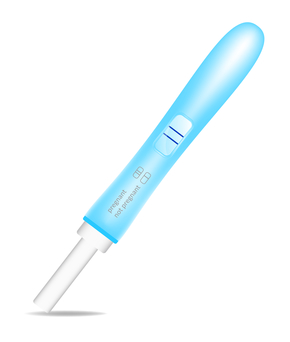Surviving the Two-Week Wait
For the woman hopeful of getting pregnant, through IVF, the period, between embryo transfer and news of the outcome, can be a torture. This interim, often referred to as “the two-week wait,” usually last some days shy of a true fortnight (despite the name) and often imposes substantial stress, upon both mind and body.
The challenges faced, during the two-week wait, are, largely, psychological, in nature, and should be dealt with, accordingly. Stress should be mitigated and emotions kept in check, as much as possible. In practice, this, generally, means diverting the mind and removing all unnecessary stress-inducing stimuli from one’s life. Following are some suggestions, for doing just that.
Physical exercise has long been known to have a calming effect upon mind and body, but for the would-be mother, strenuous exertion should, of course, be avoided. Yet, gentle, conservative activity is allowable. Walking will effectively boost endorphins, in the body, which will, in turn, reduce stress, improve general outlook, and help one to sleep more soundly. It will also afford the opportunity to breathe in fresh air and to divert the mind, with sights and sounds, encountered whilst afoot. Just make certain intensity is kept low. As to duration, 20 to 30 minutes is much-recommended, but a physician should, always and first, be consulted, on the matter.
Converse to exercise, rest is paramount, and one should make every effort to retire early, for a full night’s sleep, and even indulge in naps, throughout the day. The act of sleep, itself, can offer respite from the worries of anticipation, and may come more easily, during this time, due to the elevated progesterone levels a woman will experience, as part of the IVF treatment.

If anxiety does strike, deep breathing can prove an effective technique of dealing with it. The walking sessions, aforementioned, present a perfect opportunity, for this, but purposeful, diaphragmatic breathing can be practiced, just about anywhere, the likely result being a reduction in stress, along with the various unwanted symptoms that accompany it.
The role of the environment, in influencing state of mind, should not be underestimated, and much can be said for a dwelling, tidy and free of clutter. Indeed, studies have even demonstrated that a clean and orderly abode tends to yield happiness, for its occupant(s). For the woman, in the throes of the two-week wait, a tidy house can mean a calmer spirit and brighter, more optimistic outlook. Granted, all cleaning and tidying should be carried out, before the transfer takes place.
By no means are any of the foregoing set in stone, but they do serve to illustrate the principle that all activities a woman engages in, during the period following embryo transfer, should promote a tranquil, stress-free state of mind and body. Providing this simple principle is observed, a woman may be as creative as she wishes, in the modes she employs to achieve that state.
References:
http://news.bbc.co.uk/2/hi/health/7338644.stm
http://www.lef.org/Magazine/2006/4/report_progesterone/Page-01














